
To mark our seventh anniversary on August 1, 2017, we announced the inaugural Brittle Paper Literary Awards, to recognize the finest, original pieces of African writing published online. The awards come in five categories: Fiction, Poetry, Creative Nonfiction/Memoir, Essays/Think Pieces, and the Anniversary Award for works published on our blog. The winners in the fiction, poetry, creative nonfiction/memoir and essays/think pieces categories will receive $200 each, while the winner of our Anniversary Award will receive $300. The winners will be announced on October 23, 2017.
The 8 Nominees for the Brittle Paper Award for Creative Nonfiction/Memoir
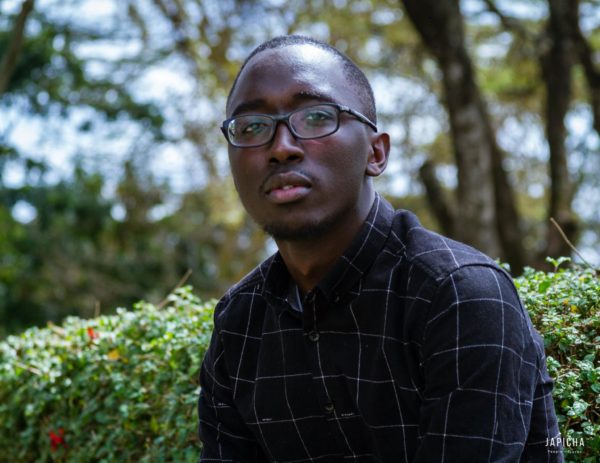
Troy Onyango (Kenya), for “How It Ends” in The Magunga
Troy Onyango is a Kenyan writer and lawyer. His fiction has appeared in various journals and magazines including Transition Magazine’s Issue 121, where his short story “The Transfiguration” was nominated for a Pushcart Prize in 2016. His short story “For What Are Butterflies Without Their Wings?” won the fiction prize at the inaugural Nyanza Literary Festival. He was shortlisted for the 2016 Miles Morland Foundation Scholarship. He is a Founding Editor of Enkare Review and the Fiction Editor of the East Africa issue of Panorama: The Journal of Intelligent Travel.
I turn my head – twisting the upper part of my body with it, like an amateur contortionist – just in time to see a silhouette fade on Kimathi Street. A slender man, of Somali descent, rushes past me and his scent is the blood boiling in my head beckoning to sit him down at the makeshift table in Kilimanjaro Restaurant and ask him what about Nairobi appeals to him.
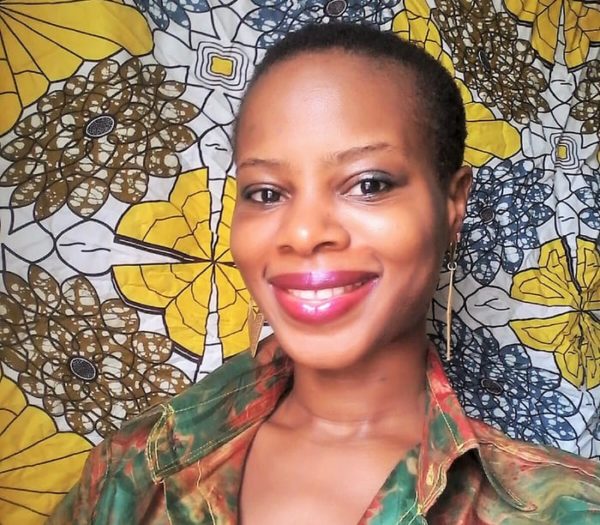
Hawa Jande Golakai (Liberia), for “Fugee” in Safe House: Explorations in Creative Nonfiction (Edited by Ellah Allfrey) and Granta
Hawa Jande Golakai was born in Frankfurt, Germany, and spent her childhood in her homeland of Liberia, later living in several African countries when her family fled the civil war. Her crime debut, The Lazarus Effect, was nominated for three literary awards, and will be published in the UK in May 2016 by Cassava Republic Press. Hawa was listed by the Hay Festival as one of the thirty-nine most promising African writers under the age of forty, and her work was included in the Africa39 anthology published by Bloomsbury. She works as a medical immunologist and health consultant in Monrovia.
My friend Fran laughs like a bawdy barmaid in a Chaucer tale, a comforting sound. I’ve decided to round my stay up to a month, so I’m staying at her flat, plotting insidious ways of never leaving. Our mouths run all day, about shoes and sex, politics and career changes, original versus fusion curry recipes, TV content – the meaningful mindlessness that any red-blooded woman who lives in a male-dominated household doesn’t know she is missing until the tap is turned back on.
Pwaanguloongi Dauod (Nigeria), for “Africa’s Future Has No Space for Stupid Black Men” in Granta
Pwaangulongii Dauod is a writer. His memoir piece, “Africa’s Future Has No Space for Stupid Black Men,” appeared in Granta.
The door was locked from the inside. We broke in. He was nowhere in the room. The windows were flung open. And when we reached the window by his bed and looked down, we saw him. He lay in a pool of coagulated blood on the concrete floor of the backyard. For all these hours he lay there dead with his split-up head, and none of his neighbours knew. He lay there and nobody knew. Death is a solo business anyway. Like depression, it is always a solo transaction. Always.
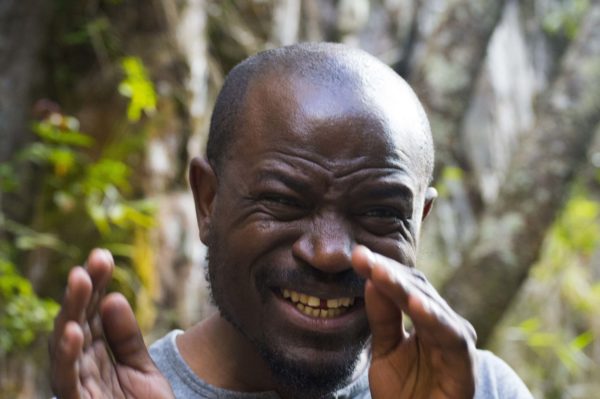
Bernard Farai Matambo (Zimbabwe), for “Working the City” in Transition
Bernard Farai Matambo’s work has appeared in Witness, Copper Nickel, Prairie Schooner, New Orleans Review, Pleiades, Plume, The Best American Essays, and Transition Magazine, among others. He has received fellowships from The Blue Mountain Center and I-Park Foundation, and has served as a visiting artist at the Delta Gallery in Harare, Zimbabwe. His first book of poems was awarded the Sillerman First Book Prize for African Poetry and is forthcoming from The University of Nebraska Press (Spring 2018). He has most recently completed a cycle of personal essays from which the nominated essay comes.
The morning wind hauls down the streets carrying a sharp chill, nipping at my ankles. I am waiting for Cato outside The Center, watching the sun’s rays bounce off the wash of passing cars on Nelson Mandela Avenue, a clamor of voices piercing its way through the sunshine. It’s never certain he will show up, but often he does, his bald head bouncing cheerfully in the crowd, catching glints of the sun like an orb of polished metal.
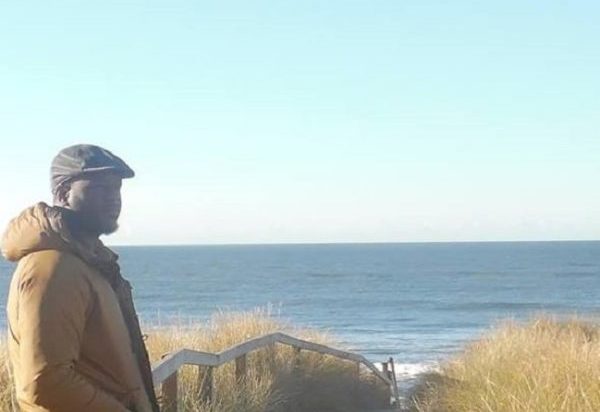
Oris Aigbokhaevbolo (Nigeria), for “Uniben Boy in Berlin” in Brittle Paper
Oris Aigbokhaevbolo is a writer, essayist, and culture critic. He holds a Doctor of Pharmacy degree from the University of Benin. In 2014, he became the first film critic to be invited for international critic academies in South Africa, Germany, and the Netherlands in a single year. In 2015, he was named winner of the first All Africa Music Award for Music/Entertainment Journalism, and was invited to mentor film critics at the Durban International Film Festival in South Africa. The following year, he was writer-in-residence at the island of Sylt, Germany. Oris wrote a humour column for the defunct Metropole magazine, and has been published by The Africa Report, The Guardian UK, and Chimurenga. He writes film criticism focused on Nollywood for This is Africa, and is West African editor at Music in Africa. He lives in Lagos and tweets from@catchoris.
Plus, I realise the chaos of Lagos has its uses. For a city like Berlin, which, considered alongside my time in Rotterdam, Amsterdam and much later, Paris, I’ll say is a typical European city, a missed stop is a full stop. In Lagos, a missed stop is a comma. You get the driver to stop; you cross; you take another bus back. (Your mileage varies according to the driver’s mood.) Not so Berlin. Just try getting a train to stop between stations.
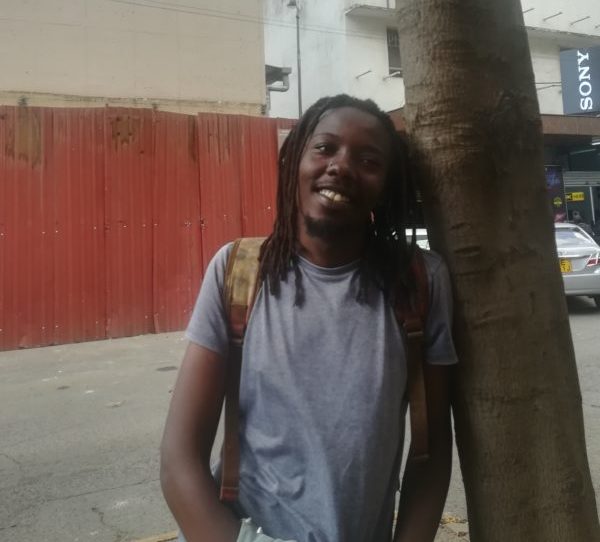
Bethuel Muthee (Kenya), for “Naijographia” in Enkare Review
Bethuel Muthee is a Kenyan poet living and working in Nairobi. His poetry has been featured in Jalada: Afrofuture(s) and Kwani? He participated in Naijographia: A Play on Travelling Time and Place, an exhibition held at the Goethe Institut Nairobi and curated by Jepkorir Rose.
Seeing: a measure of distance between the self and the seen; the distance between the eye and the seen—length of time traveled. I have seen Nairobi my whole life. If seeing is also a measure of knowledge, I know a little, everything I have seen races in front of my eyes. Nairobi and I have been slipping past each other, moving by memory like the blindness of lovers in the dark. Habit derives from the Latin word habitare meaning to dwell: to live somewhere; to think and speak at length over something; to linger. It is a practice. I have made a habit of walking in order to see Nairobi.
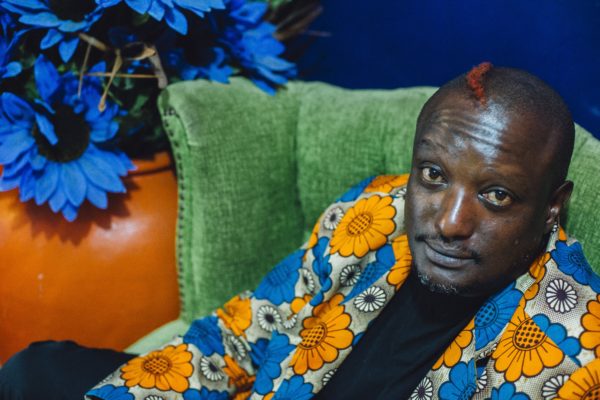
Binyavanga Wainaina (Kenya), for “Since Everything Was Suddening into a Hurricane” in Granta
Binyavanga Wainaina is a journalist and winner of the 2002 Caine Prize for African Writing. He is the founder of Kwani? magazine. His memoir, One Day I Will Write About This Place (2011), was picked for Oprah’s Book Club. In 2014, he was included in TIME‘s “100 Most Influential People in the World.” He has taught at Williams College, Union College, and the Farafina Creative Writing Workshop, and was Director of the Chinua Achebe Centre at Bard College, U.S.A. He is the recipient of numerous honours and fellowships, including from Lannan Foundation and Africa’s Out!. He is currently a DAAD Fellow in Germany.
Three months ago I have, over four days, many headaches. Sometimes it is a thick wet wringing tongue moving there inside the raw roof of my brain, sometimes tiny skinless creatures tiptoeing, tickling and mischieving in my brain. Sometimes it is a big twinkling sponge of squeeze, sometimes some silently ticklish thing, walking upside down barefoot under my naked skull.
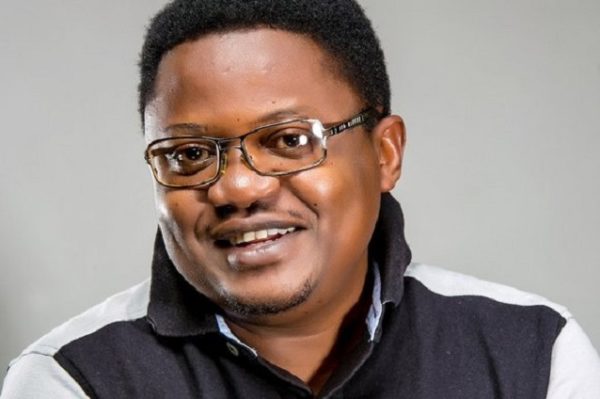
Rotimi Babatunde (Nigeria), for “Out of Europe—Traveling with the Caine Prize in Germany” in Caine Prize Blog
Rotimi Babatunde is a writer and playwright. In 2012, he won the Caine Prize for his short story “Bombay’s Republic.” In April 2014, he was named in the Hay Festival’s Africa39 project. In 2015, his short story “The Collected Tricks of Houdini” was longlisted for the Sunday Times EFG Private Bank Short Story Award. His plays have been broadcast on the BBC World Service and presented at London’s Institute of Contemporary Arts, the Swedish National Touring Theatre, and the Halcyon Theatre, Chicago. He is also a winner of BBC World Service’s Meridian Tragic Love Story Competition as well as the AWF Cyprian Ekwensi Prize for Short Stories.
So the Turk, the German and the Nigerian, transiting through Istanbul from different places but, like Chaucer’s medieval pilgrims, compelled into instant comradeship by a common purpose, begin the long hunt for the relevant ticketing desk. The Turk, clutching several rolls of duty-free cigarettes, is in the lead, the three of you sweeping briskly through the self-replicating vastness of that airport for what seemed an eternity before the ticketing desk is finally located.









Write with Style Workshop with Oris Aigbokhaevbolo | Apply now! | ACEworld Publishers August 31, 2021 03:28
[…] Journalist of the Year at the 2015 All Africa Music Awards and was a finalist for the 2017 Brittle Paper Award for Nonfiction. A writer-in-residence at the island of Sylt in Germany, his work as an editor has been awarded by […]